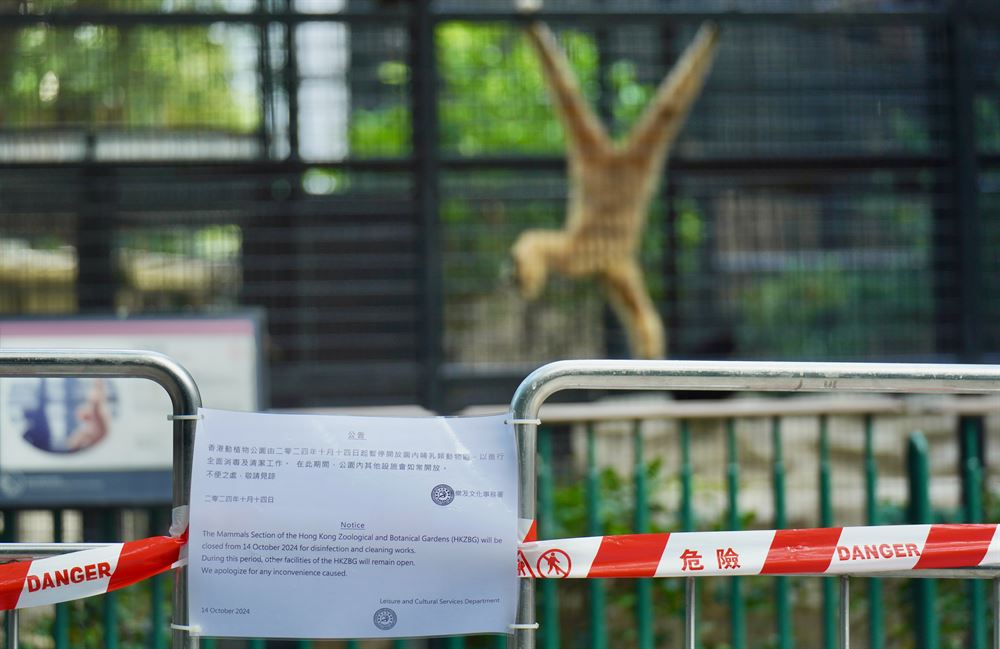
HONG KONG – Another monkey was found dead at the Hong Kong Zoological & Botanical Gardens on Saturday, bringing the total number of animals that died at the zoo since last week to 10 amid an outbreak of melioidosis.
The Leisure & Cultural Services Department said in statement that a common squirrel monkey at the Hong Kong Zoological & Botanical Gardens that had been isolated and put under close observation was found dead.
The Agriculture, Fisheries & Conservation Department will conduct a necropsy to determine if the cause of death was the same as the other earlier cases. Test had shown that the bacterial infection Melioidosis was behind the abrupt death of nine monkeys at the zoo in Central.
ALSO READ: Bacterial infection behind deaths of nine monkeys in HK zoo
Eight monkeys — including one De Brazza’s monkey, one common squirrel monkey, three cotton-top tamarins, and three white-faced sakis — were found dead on Oct 13; another one died the following day.
The official necropsies revealed that the monkeys died from sepsis caused by melioidosis, a disease caused by the bacterium Burkholderia pseudomallei, which can infect both humans and animals.
The LCSD said the monkey that died on Saturday was one of two common squirrel monkeys put under isolation and medication since Oct 16, after they showed unusual behavior.
At present, the remaining common squirrel monkey and one De Brazza's Monkey under isolation since Oct 13 are being closely watched and are on medication.
READ MORE: HK zoo partially closed after 8 monkeys found dead
The LCSD said it will keep the zoo’s mammals section closed to the public to monitor the health condition of the animals and ensure the safety of zoo staff members.
As of Saturday night, the health condition of the staff members remained normal, the department added.
Authorities assured the public that there was no need to worry about the spread of the disease since it generally will not transmit from person to person or from animals to humans.
Humans can become infected with melioidosis through contact with contaminated soil and surface waters, authorities added.


